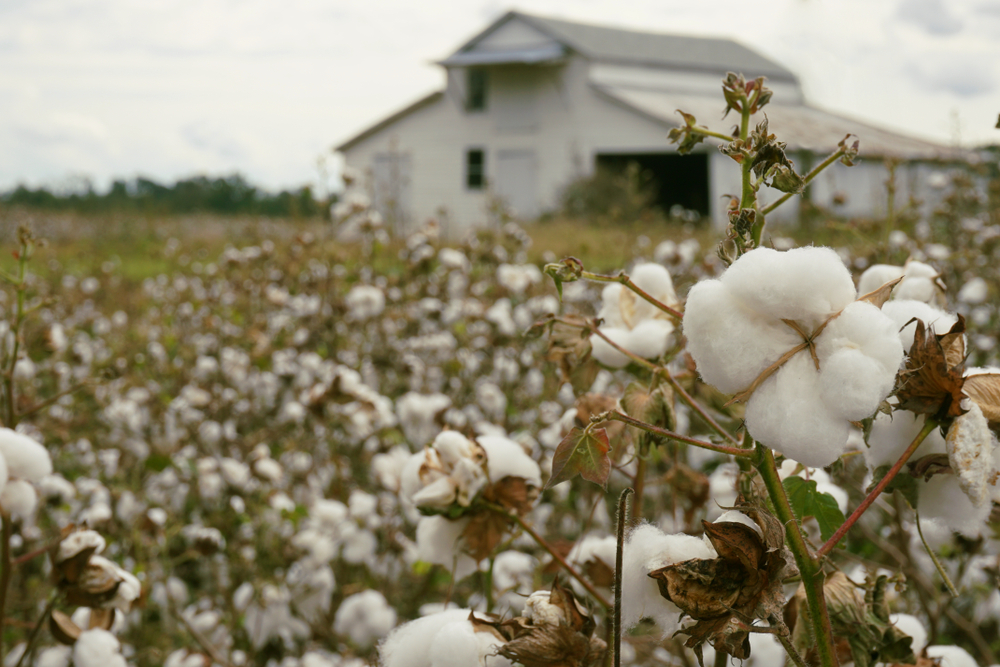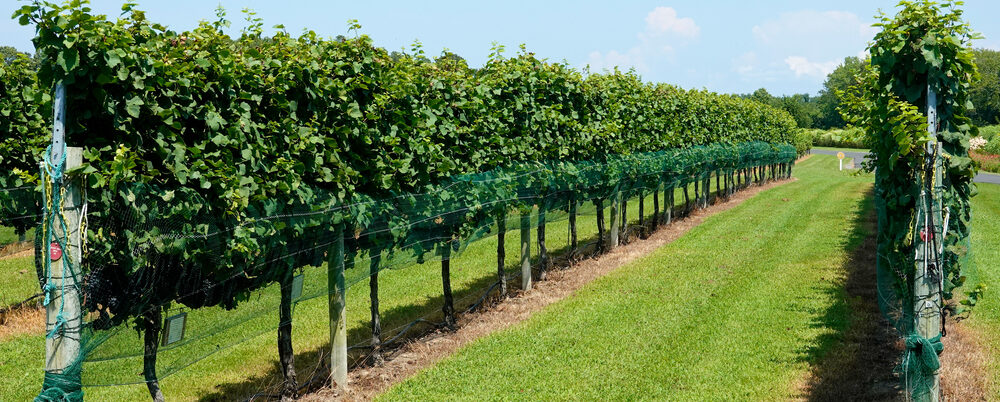About 4.7 million acres of land in South Carolina are devoted to agriculture, and as the state’s biggest industry, farming has an estimated $46 billion annual impact on South Carolina’s economy. With the size and scale of farming and forestry, it’s no wonder that many people across the state are concerned about their exposure to the controversial weedkiller “Roundup” and are wondering if they should pursue legal remedies.
Roundup is the most commercially successful herbicide in history, but in recent years, it has become the center of a legal firestorm. Bayer AG, the company that produces Roundup, is facing more than 125,000 class-action lawsuits over claims that the product causes cancer.
Bayer has proposed setting aside up to $12 billion to settle current and future claims about Roundup, but those offers came after three consecutive jury verdicts awarding plaintiffs a combined $2 billion in compensatory and punitive damages.
What should Roundup users in South Carolina know about the product and its potential health implications, as well as what legal recourse they may have if they used it and became sick due to this exposure?
What Does Roundup Do?
As any herbicide does, Roundup kills plants. But the active ingredient in this blockbuster product used to have an entirely different purpose. Let’s explore the background of Roundup and the ways it is used today in South Carolina and beyond.
History of Roundup
For decades, a chemical called glyphosate was used to dissolve and remove calcium buildup from boilers and other large-scale plumbing and heating equipment. But in the early 1970s, a researcher for Monsanto Corp., which famously invented controversial products like saccharin, discovered that the plumbing solvent killed plants.
After patenting glyphosate for use as an herbicide, Monsanto introduced its new glyphosate-based weedkiller Roundup in 1974. Soon, the product became widely used in farming, residential lawn care, and commercial landscaping. It would go on to become the most popular weedkiller in the world.
Roundup & South Carolina Agriculture
While it is true that Roundup is in wide use by homeowners, renters, groundskeepers, and more, the single biggest area of use is in farming. This is due not only to the product’s effectiveness at killing plants, but also to Monsanto’s introduction of Roundup Ready seed, which are used to grow crops that are immune to this herbicide.
Millions of pounds of glyphosate are spread on American farm fields every year, and since 1992, that number tops an estimated 3.8 billion pounds, according to data from the U.S. Geological Survey.
Let’s take a closer look at farming and glyphosate in South Carolina:
- Since 1992, about 25 million pounds of glyphosate have been used in South Carolina, which is slightly below the national average.
- In 2017, the most recent year for available data, about 1.2 million pounds of glyphosate were used in South Carolina agriculture. Glyphosate use in South Carolina has increased by nearly 100% since 2000.
- Glyphosate is the most widely used pesticide or herbicide in South Carolina farming.
- Soybeans (38%), corn (30%), and cotton (24%) account for more than 90% of glyphosate used in the state, while wheat and orchard crops add a combined 3%.
- South Carolina is the nation’s 12th-biggest producer of cotton, and the state produced about 325,000 bales of cotton in 2020. About 50 million bushels of corn came from South Carolina in 2020, while the state produced about 10.6 million bushels of soybeans.
Is Roundup Dangerous?
The alleged safety of Roundup is at the heart of the legal trouble Bayer is facing. Both Monsanto and Bayer have maintained that Roundup is not dangerous, largely because the plant enzyme it targets to kill weeds does not exist in humans.
Recent scientific studies rejects this premise, however. According to a University of Washington analysis, exposure to glyphosate raises a person’s risk of developing non-Hodgkin lymphoma (NHL) by 41%. NHL is the type of cancer suffered by every plaintiff who has won a verdict against Roundup so far and is present in most of the 125,000 other people who have filed lawsuits.
Let’s take a closer look at this type of cancer and why Roundup has been able to remain on store shelves despite its growing connections to cancer.
Non-Hodgkin Lymphoma
NHL, like all types of lymphoma, forms when white blood cells grow out of control. Several types of lymphoma are categorized by doctors under the NHL label, but they are distinct from another form of the disease, Hodgkin lymphoma, which is often referred to as “Hodgkin’s disease.”
Non-Hodgkin lymphoma accounts for about 4% of all cancer cases, which makes it somewhat common, though not nearly as common as lung or breast cancer. About 82,000 Americans per year are newly diagnosed, and nearly 21,000 die from the disease in an average year.
South Carolina residents who used glyphosate or Roundup, especially if they used it at least a year ago, should watch out for some of these common symptoms —though signs of NHL vary by age and extent of cancer:
- Chest pain
- Cough
- Chills
- Easy bruising
- Fatigue
- Fever
- Frequent, severe infections
- Night sweats
- Shortness of breath
- Swollen abdomen
- Swollen lymph nodes
- Weight loss
If the symptoms here describe physical any signs you’ve seen in yourself or in a loved one who used Roundup, you should seek a consultation with a doctor right away. Nobody wants to receive a cancer diagnosis, but the truth about NHL is that if it is caught early enough, the chances of survival can be quite high, depending on your circumstances.
In fact, the American Cancer Society estimates that among all patients, about 72% of those diagnosed with NHL survive at least five years after their diagnosis. That’s as high as 84% for those whose cancer is caught in the earliest stage.
Roundup’s Regulatory Status
As recently as 2020, the U.S. Environmental Protection Agency (EPA) has reauthorized glyphosate for use as an herbicide in the United States, as the agency has declared it to be non-carcinogenic, meaning it does not cause people to develop cancer.
But its regulatory status with the EPA is not the view held by many other agencies. In fact, the World Health Organization’s cancer research agency formally lists glyphosate as a probable carcinogen, as does the state of California. And barring a lawsuit preventing the law from going into effect, at the end of 2021, New York will be the first state to legally bar glyphosate from being used on state-owned land.
What’s the Current Status of Roundup Litigation?
More than 125,000 class-action lawsuits and multijurisdictional litigation have been filed so far over Roundup. Three cases have completed the trial process, and in all of them, plaintiffs were awarded huge sums, as jury members were convinced that, not only does Roundup cause or contribute to cancer, but also that Monsanto hid the risks of the product from the public.
Every jury award so far has been reduced on appeal, but Bayer and Monsanto have failed to convince judges to overturn the verdicts themselves, so after suffering three straight losses, in 2020 Bayer suggested settlement offers to end most pending litigation and establish a method for compensating potential future victims.
About $10 billion would go to ending the current litigation, while $2 billion would be set aside for future claims. Neither proposal has been finalized by judges yet, but it has been reported that the majority of current plaintiffs have agreed to the offer in principle.
At least one hearing is expected to take place in summer 2021 over the proposed $2 billion for future claims, and until the main settlement offer is formally approved, multiple trials are expected to proceed in courts across the country.
Meanwhile, Bayer continues to appeal two of the three verdicts against it, agreeing to drop one set of appeals in the case of California school groundskeeper Dewayne “Lee” Johnson, whose case was the first to proceed to trial. It’s not known when Johnson will receive the millions a judge decided he is due.
Labeling Class-Action Settlement
Separately, Roundup was also the subject of a product labeling class-action lawsuit. A $40 million settlement was approved in this case. It means that South Carolina residents who bought Roundup after Feb. 13, 2013 may be eligible to receive up to $90 in compensation because of language on the product label indicating that, because it targets a plant enzyme, it can’t harm people or pets.
How Much Can I Get From a Roundup Lawsuit in South Carolina?
Little clarity is available when it comes to what to expect from a Roundup lawsuit. On one hand, plaintiffs who have proceeded to trial have been awarded jury verdicts topping $2 billion, but on the other hand, each of those has been reduced on appeal, and none of the plaintiffs have yet seen a dime.
However, the chances of Roundup victims receiving compensation of some sort seems high. It’s important to note that, while judges have reduced jury awards, they have not overturned findings, which means that the basic facts have been upheld.
We can also look to Bayer’s own settlement proposals for some guidance. The company’s proposals suggest that the average victim would receive about $165,000, with certain factors raising or lowering that amount, including their age at diagnosis and the extent of their disease.
Survivors of Roundup victims would be expected to receive the highest settlement awards, especially if the deceased person left behind a spouse or minor children. Notably, the offers are being extended only to U.S. citizens, which means migrant workers who got sick after using Roundup will probably not be eligible for payouts.
What Should I Do if I Have Been Affected by Roundup?
South Carolina residents who used Roundup, glyphosate, or a related herbicide, should stop using it, even if it’s for their jobs. If applicable, they should consult their employer for a safer alternative.
If you’re experiencing any of the medical symptoms we detailed earlier, please seek an appointment with a doctor for a full examination. With negotiations over settlements ongoing, that means if you haven’t yet filed a lawsuit over Roundup, there’s still time for you to seek justice. The best way to do that is to speak with an expert Roundup class-action law firm in South Carolina. We can help connect you with a firm in your area.
Consultations are usually free, and most victims don’t pay legal fees unless they prevail in their case.





